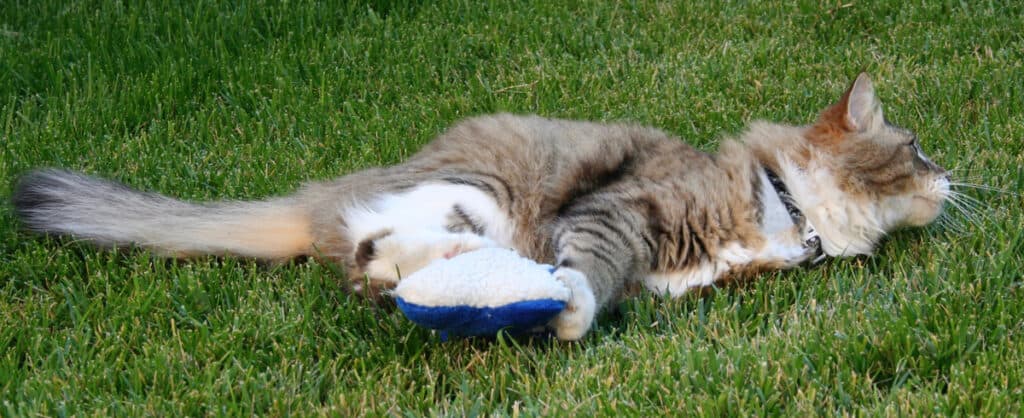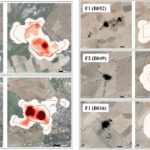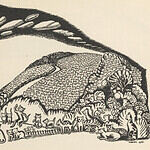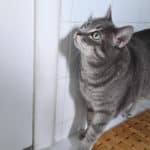My orange tabby loves to play. He is the only one of our three cats that will seek out cat toys and balls and run all around the house with them.
Occasionally, as he runs along batting the ball, he will let out an extended hiss. The sound of a cat hissing while playing can be confusing as a lot of people associate hissing with a fear or anger-based response.
What is Hissing?
When a cat hisses, they expel air in a sudden burst over their tongue. The forced air makes a sound similar to a snake’s hiss or air being released from a ball or tire.
To hiss, cats will roll up the sides of their tongues. It’s this channel combined with the speed and force of the air travel through that channel that creates the hissing sound.
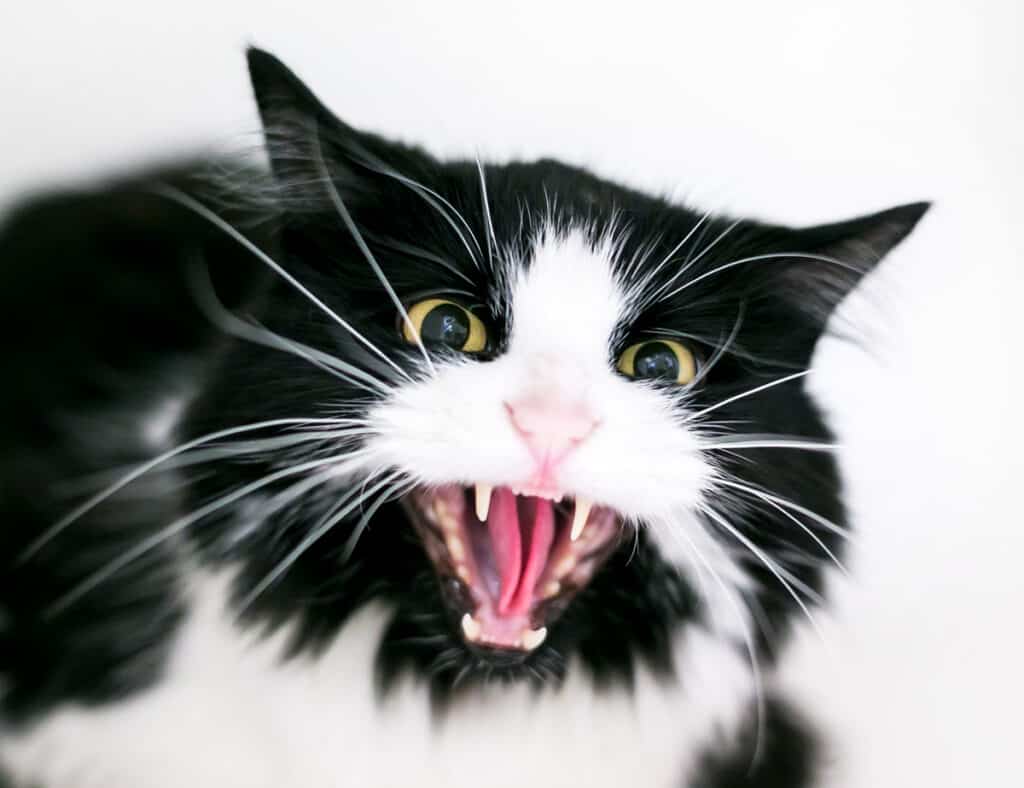
Two Reasons Why Cats Hiss When Playing
There are two main reasons why a cat might hiss while playing.
1. Your Cats Has Had Enough Play Time
The first reason is a negative response by the cat to the situation. Some cats can quickly move from a happy state to an irritated state while playing or being groomed. These cats will quickly shift their body language and stance to show that they are done.
If the body language is being ignored by another pet or a human, the cat may escalate their show of aggression by biting or hissing. Hissing in this situation is a cat’s way of saying, “stop! That’s enough!”
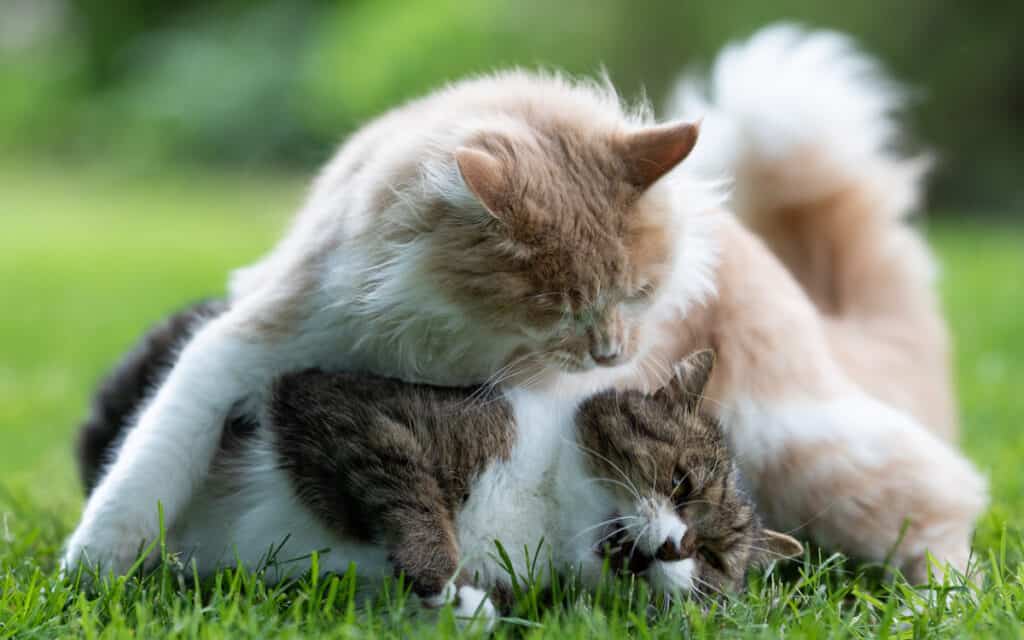
Never punish your cat for reacting negatively in this situation. The response of a cat to undesired attention or touching is a reflex and you will end up confusing your cat. Your cat will also learn to associate playtime with a negative experience.
Instead, immediately pull your hand away and silently stop your actions. For future play or grooming sessions, learn to recognize the signs that your cat is done with playing so that you can react appropriately.
Cats that don’t want to continue to play will show other signs such as a tense body, ears that are pointed flat and back, and a fast swishing tail.
Play time should be a fun and pleasant experience for both your and your cat. Different cats have different tolerance levels for the type and length of interacting with you.
2. Your Cat is Overly Excited About Playing
Some cats, like my orange tabby, can become overly excited when playing. Hissing in reaction is simply a personality quirk of these cats.
All that built up energy and excitement has to go somewhere and for these cats, it’s expelled by hissing.
Cats that hiss excitedly while playing are not irritated and will not express body language that indicates that the cat is scared or angry. These cats will have relaxed but alert body stances, upright ears, and a slow or still tail.
